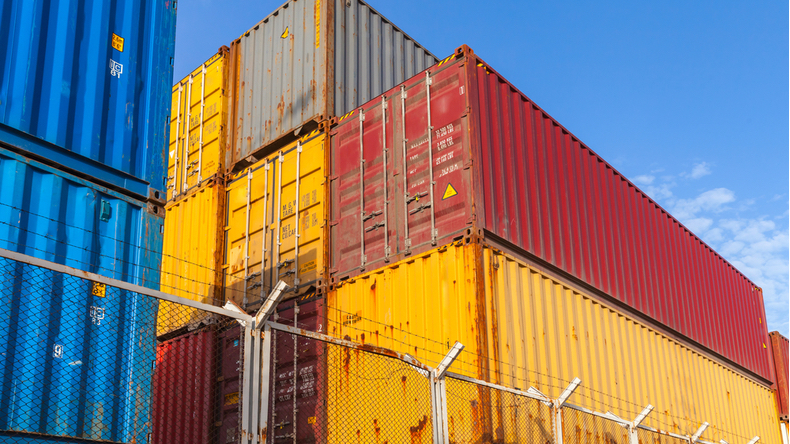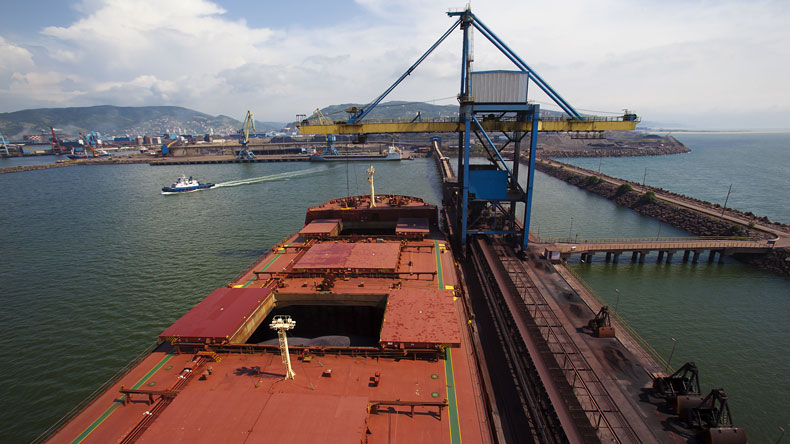Weekly briefing: Box lines' earnings lift, tanker downturn to continue
CMA CGM reports 26% earnings jump, lower oil consumption hurts tanker market, Panama releases initial statement on reasons for Wakashio grounding
Major container lines have across the board reported their best second-quarter earnings since 2010 as capacity discipline pays off. Meanwhile, the tanker market is seeing rates below breakeven levels as oil demand continues to be subdued, and dry bulk freight futures are almost on a par with spot rates
THIS weekly briefing provides sector-by-sector coverage of the biggest news and analysis in shipping.
Follow the links within the text to the relevant news items in each market segment
Containers
CMA CGM this week rounded off the list of box lines that report quarterly earnings, and joined the list of carriers, including Maersk, Hapag-Lloyd and Zim, to report a significant earnings lift for the second quarter.
The group’s operating result improved by more than 26% during the three-month period to more than $1.2bn, which the French carrier attributed to tight capacity management discipline. Volumes lifted were down 13.3%, but cost savings brought about by lower fuel prices and blanked sailings more than made up for this downturn in volumes.
Across the board, container lines have had their most profitable second quarter since 2010, despite witnessing the largest slump in cargo carried since the global financial crisis.
The decoupling of the normal laws of supply and demand, which has also seen record freight rates on many trade lanes, has been much commented on but really boils down to one thing: capacity discipline.
Instead of striving to take a larger share of an ever-decreasing market, as they have done in the past, container lines have taken a more mature approach, and reduced capacity to meet demand.
That demand has held up remarkably well, despite the economic carnage of the pandemic. This, too, has raised questions. How do consumers keep consuming amid an economic slump that at least matches that of 2008-2009.
The answers are unclear, but there appear to be two things going on here. Lockdowns have prevented consumers accessing many of the services they normally would do. Entertainment and travel have been largely curtailed. For those still earning, that has meant more available cash for goods rather than services. And goods, unlike services, tend to be shipped in containers.
The current peak season is also likely helped by the vagaries of the of the just-in-time supply chain. Retailers don’t like to keep large stockpiles in their warehouses. When demand fell during peak lockdown in April and May, orders stopped and inventories were run down.
Now that some demand is returning, retailers need goods, and fast.
But there are questions over how long this will last. As BIMCO’s Peter Sand points out today, consumer demand cannot defy economic gravity forever. Actual demand for consumer goods remains muted, and this could well lead to a sharp contraction in demand again when the peak season passes.
Will carriers have learned the lesson well enough to maintain their discipline? Only time will tell, but the rumours that Cosco subsidiary Orient Overseas Container Line is about to head to the yards again for another seven 23,000 teu ships will be of concern.
Overcapacity got container lines into the mess they were in for the past decade. Capacity management has helped them survive what could have been a fatal year. It is up to the lines now to consider which is the better option.
Tankers
The downturn in the tanker market, mainly fuelled by lower demand from the aviation industry as a result of coronavirus, is likely to continue for several months more, according to shipping association BIMCO, which calculated that all segments are at loss-making levels.
After the record earnings seen in April, tanker rates have collapsed to below breakeven levels, and the “fundamentally lower oil consumption will hurt the industry for at least 15 months”, the Copenhagen-based group said in its latest tanker outlook report.
As at the end of August, earnings for very large crude carriers averaged $16,949 per day, which is a daily loss of about $7,000, according to BIMCO estimates. Likewise, suezmax earnings of $11,949 per day are about $8,000 below breakeven levels, while aframaxes, which earned an average of $9,322 per day, were losing about $7,700 per day.
The coronavirus backdrop has wiped out six years’ worth of oil demand, which is “devastating”, BIMCO’s chief shipping analyst Peter Sand said, adding that the loss of demand, and therefore tanker shipping, will lead to a “worsening of the fundamental balance” in the market.
Meanwhile, three of the five Iranian product tankers that delivered gasoline to Venezuela over late May and early June have been tracked loading refined product cargoes at Bandar Abbas and are again sailing for the South American country.
The five-week voyage means the tankers are destined to arrive for Venezuela in mid-October, at the height of the US presidential campaign. The provocative move is timed to add maximum pressure on the Donald Trump administration, whose sanctions on Iran and Venezuela have been used as an aggressive foreign policy tool that has deeply influenced global energy commodities markets.
Meanwhile, data from Lloyd’s List Intelligence suggests the US Office of Foreign Assets Control sanctions have had a considerable impact in changing the operations of Greek shipowners involved in the trade of Venezuelan oil.
Elsewhere, anger is growing within the maritime community about the treatment of the Maersk Etienne crew, and the migrants they rescued more than a month ago, amid calls for a change to the law in a bid to ensure such a situation never occurs again.
The latest to speak out is the head of V.Ships, Franck Kayser, who said it was “shameful to see that the human rights of refugees and the 21 seafarers involved are being ignored”.
The product tanker picked up the refugees in early August at the request of the Maltese authorities but was not allowed to disembark them in Malta, which claims it can no longer cope with so many migrants in such a small country.
Finally, a small patch of diesel oil has been spotted 1 km away from the very large crude carrier New Diamond, raising concerns over a more severe leak from the vessel.
The fire on board the VLCC off the Sri Lanka coast, which reignited on Monday evening, was doused and boundary cooling was being carried out to prevent reignition, the officials said.
Dry Bulk
In market news, dry bulk freight futures appeared to be on par with spot rates as of late last week as the market lacked direction. Given the trend, the prices for calendar 2021 looked cheap, according to Breakwave Advisors, an exchange-traded fund based in the US.
Global miner BHP has agreed a five-year charter with Singapore’s Eastern Pacific Shipping for five new newcastlemaxes to ship iron ore from Western Australia to China. The vessels, which are scheduled to be delivered through 2022, will be fuelled by liquefied natural gas.
In other company news, Golden Ocean hired the interim chief executive from Avance Gas Peder Simonsen as its new chief financial officer following the resignation of Per Heiberg, who had been in the role since April 2016. The appointment comes five months after the head of Avance Gas Ulrik Andersen joined the Oslo-based John Fredriksen dry bulk unit as its head.
The Panama Maritime Authority has issued a preliminary statement about the progress it has made in trying to find out what caused the capesize vessel Wakashio to ground on a coral reef in Mauritius at the end of July.
It highlights alleged failures of command supervision after it reported that the vessel deviated from its planned course in search of a mobile phone signal relating to a birthday message interaction.
Panama’s information-gathering also found that the vessel did not appear to have the appropriate electronic nautical chart, which was using the wrong scale, and meant that the officer on board could not properly assess the approach to the coast.
However, the Panama team have yet to interview the captain or the first officer, who are both in custody awaiting trial. A court hearing is due to take place this week.
The authority also said it has not had access to voyage data recorder and other essential documents held by the Mauritian police.
Meanwhile, a third body was recovered after a tug and a barge it was pulling from the Wakashio wreck collided. The incident has angered the public, with widespread protests about the island government’s handling of the situation.




